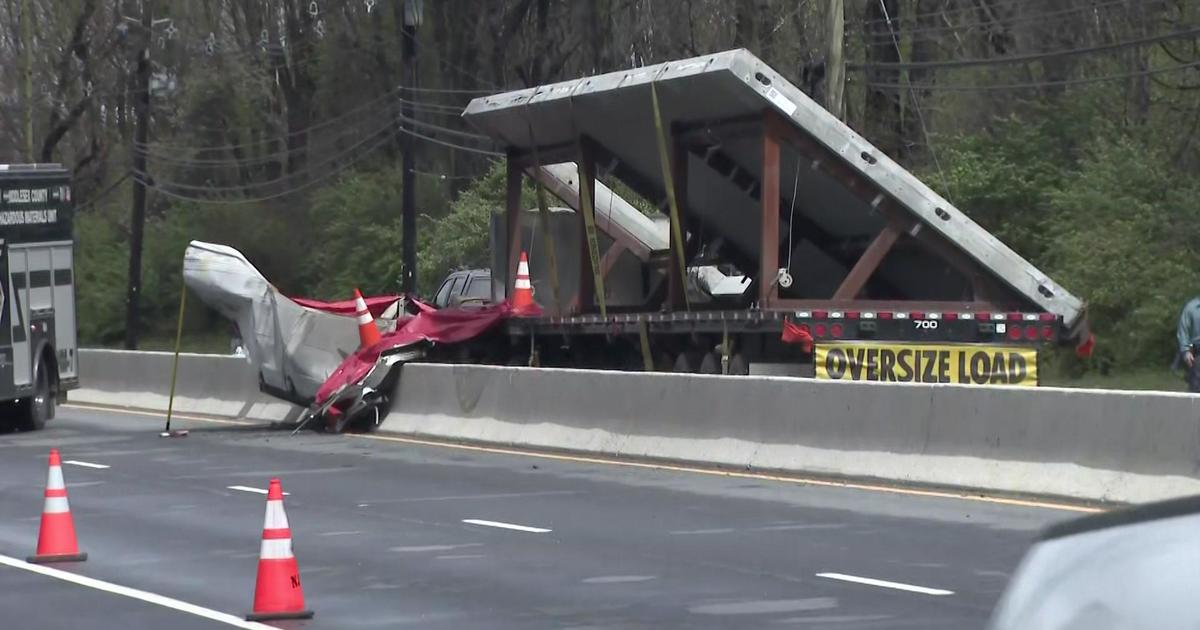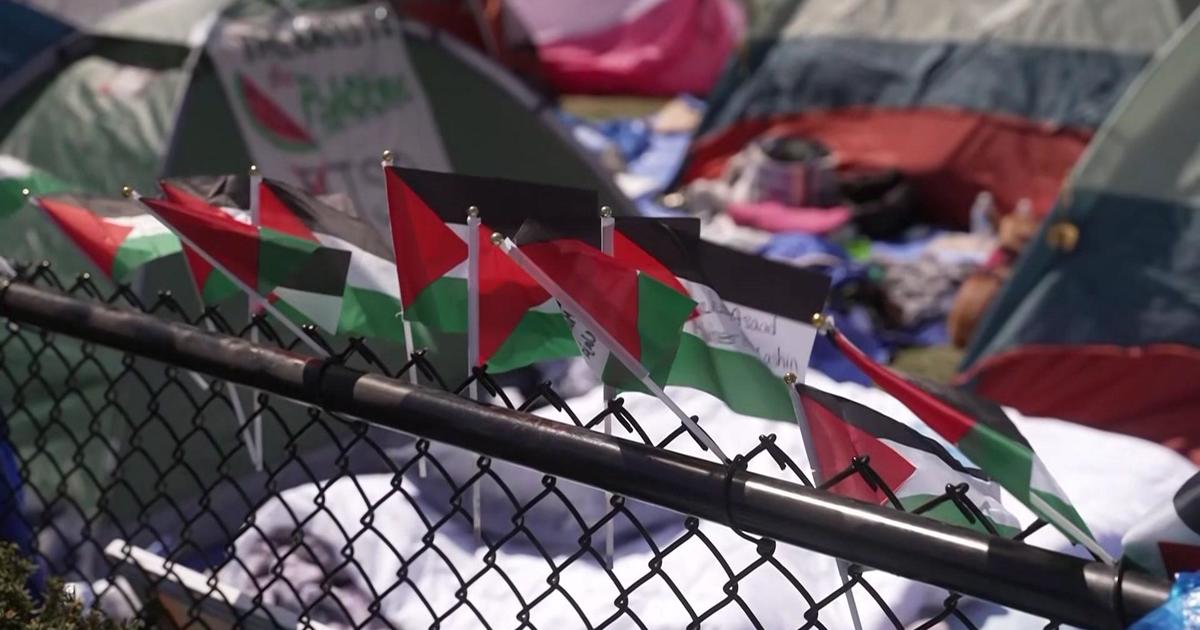Holocaust Remembrance Day Observed Around The World
NEW YORK (CBSNewYork/AP) -- Monday is Holocaust Remembrance Day.
It's a day of commemoration for the six million Jews killed by Nazi Germany and its collaborators during World War II.
Israel came to a standstill as sirens wailed for two minutes and people stopped in their tracks.
In Lower Manhattan, Holocaust survivors from Germany and Poland were at the Museum of Jewish Heritage discussing their experiences with hundreds of local students.
"My mother and sister did not survive," survivor Avivia Finklestein Blumberg told CBS2's Scott Rapoport.
The horrible, inhumane images of Hitler's death camps only begins to tell the terrible tales.
"People cannot imagine, describe what a concentration camp is," survivor Ray Kaner recalled. "As a child I suffered constantly; hunger, cold, and fear."
Kaner endured life in the Polish ghettos before being sent to Auschwitz, and says the horror of it all is still fresh in her mind -- especially the fear.
"Fear that somebody would kill my parents," she said," which they did. Fear that somebody would kill my brother, which they did."
85-year-old Finklestein Blumberg endured the infamous Warsaw ghetto, and says she remembers being surrounded by death.
"The daily detail of push carts picking dead people off the streets to bury them," she said.
"We have an obligation to remember and we have an obligation to react," said Michael Glickman, the museum's president and CEO.
One of those partaking in the event is 83-year-old Sally Frishberg.
For many years, Frishberg couldn't bear to share her story.
"It took a great deal of effort to learn how to tell it because I would cry," Frishberg said.
Frishberg was eight years old when a Polish farmer hid her family. There were 15 of them in a straw-filled attic.
"We lived in terrible dirt," she said. "I didn't brush my teeth for two years. I didn't comb my hair for two years."
They were finally liberated when Frishberg was 10.
Now she tells her story as often as possible.
"The world must know that hatred has to be ended," said Frishberg, who came to the U.S. 70 years ago. "We no longer can afford it."
Students in attendance say the moving recollections were hard to hear, but important to know.
"It's just so incredible to just hear their stories now and learn what they went through," 16-year-old Shelly Davon said. "And I have like this newfound respect for them because I never heard this first hand. And it's amazing."
The Museum of Jewish Heritage at Battery Place in Lower Manhattan will have extended hours through April 30th. Admission is free.
Meanwhile, upstate in Hyde Park, Dutchess County, the Franklin D. Roosevelt Presidential Library and Museum has launched an effort to find "unique but dispersed" Holocaust documents and other related material included in the institution's vast archives.
The library and museum, located in FDR's hometown, announced the launching of the Henry Morgenthau, Jr. Holocaust Collections: A Curatorial Project on Monday, Holocaust Remembrance Day.
Among those attending the ceremony were Morgenthau's son, former Manhattan District Attorney Robert Morgenthau, and Robin Vrba, wife of Auschwitz escape and Holocaust chronicler, Rudolf Vrba. Henry Morgenthau was Roosevelt's treasury secretary and a leading advocate for the creation of the War Refugee Board during World War II.
The library project will begin by exploring three of its major collections: the Morgenthau papers, the records of the War Refugee Board, and the Vrba papers.
Officials at the nation's first presidential library, located 70 miles (113 kilometers) north of New York City, said that by building on existing digital resources it will provide better access to the Holocaust-related records in its archives. The various collections will be available on the library's website, www.fdrlibrary.org.
The FDR Presidential Library is home to more than 400 manuscript collections that document the Roosevelt administration from 1933-45, including records on various refugee groups fleeing Nazi persecution and the Roosevelt administration's responses. Some of the collections have yet to be digitized.
Newly added to the collection are the Rudolph Vrba Papers. Born in what was then Czechoslovakia, Vrba was 19 in 1944 when he and fellow inmate Alfred Wetzler escaped from the Nazi death camp at Auschwitz-Birkenau in German-occupied Poland.
The report they co-wrote on the camp's gas chambers and other mass murder operations were some of the earliest firsthand indications of the Nazi plan to exterminate Europe's Jewish populations.
"Rudi had a great admiration for Franklin D. Roosevelt and the United States resolve and action to defeat Nazism," Robin Vrba said at the ceremony. "I know he would be proud that all this work is housed in the FDR Library and will be available to researchers online."
(© Copyright 2017 CBS Broadcasting Inc. All Rights Reserved. The Associated Press contributed to this report.)



